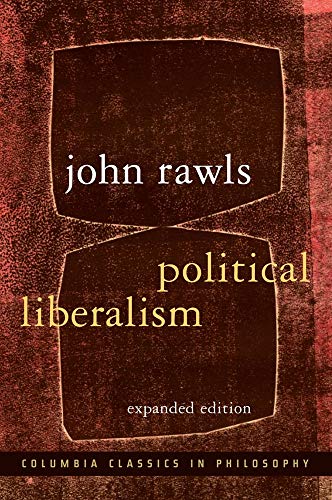Political Liberalism (Columbia Classics in Philosophy)
John Rawls
BOOK REVIEW

When contemplating the landscape of modern political philosophy, few texts resonate with the fervor and depth of Political Liberalism by John Rawls. This monumental work transcends the dry confines of academic discourse to ignite passionate dialogues that ripple through our current socio-political climate. With its intricate exploration of justice, fairness, and pluralism, Rawls compels readers to grapple with fundamental questions about the frameworks that underpin our societies and the moral foundations that guide them.
Rawls, a titan of philosophical thought, invites us into an arena where conflicting values and beliefs collide-a world where individuals are not only bearers of rights but also citizens of communities marked by diversity and disagreement. His concept of "political liberalism" emerges from this fertile ground, challenging the often rigid paradigms of traditional liberalism which assume a singular vision of the good life. Instead, Rawls tells us to embrace complexity, recognizing that a harmonious society is one that honors its multifaceted nature. This perspective is not merely theoretical. It has real-world implications, particularly in an era rife with divisive politics and cultural polarization.
The emotional impact of Rawls' work is staggering. He deftly articulates the frustrations that arise in societies swayed by majoritarian principles, where minority voices risk being drowned out. When Rawls emphasizes the importance of a social contract that respects and acknowledges differences, he doesn't just provoke thought; he instills a sense of hope. Hope that a more just and equitable society is possible, one where collaborative dialogue takes precedence over discord, and where every individual, regardless of their identity, has a stake in the community's future.
Critics of Rawls, however, often argue that his vision is overly idealistic, detached from the realities of political maneuvering and human nature. Some assert that his principles may falter in practical application, particularly in a world steeped in historical injustices and power imbalances. Yet, it's precisely this tension between aspiration and reality that makes Rawls' arguments so vital. Rather than offering a simple blueprint for social organization, he presents a moral framework that invites rigorous examination and reflection-inviting us to demand more from our political institutions and from ourselves.
The context in which Rawls wrote his seminal text cannot be overlooked. Published in the heated atmosphere of the late 20th century, a time marked by civil rights movements and growing calls for social justice, Political Liberalism resonates more than ever in today's landscape marked by strife and division. Drawing from the philosophical underpinnings laid down in his earlier work, A Theory of Justice, Rawls sought to refine and adapt his theories to respond to criticisms and evolving societal norms. This evolution demonstrates not only a commitment to rigorous intellectual examination but also an inherent adaptability that mirrors the complexities of modern life.
Engaging with Rawls' text is not merely an academic exercise; it is an invitation to confront our own beliefs about justice and equity. As readers, we are urged to critically evaluate the structures we inhabit and to consider the extent to which they enable or restrict our freedoms. Notably, his ideas have profoundly influenced contemporary thinkers and activists, from legal theorists advocating for reforms to civil society organizations striving towards more inclusive governance.
Rawls' masterpiece does more than detail philosophical principles-it sensitizes us to the moral imperatives of our age. It challenges us to live with integrity in a world that often seems chaotic and cruel. It asks us to consider: what does it mean to be just? What kind of society do we want to build? These questions are not idle speculations; they demand our attention and our action.
In a time where the insatiable thirst for justice is paramount, Political Liberalism serves as both a beacon and a battleground. It is a text that motivates and inspires, one that dares us to envision a society where respect for individual dignity and a commitment to the common good can coexist. This is not simply philosophy; it is a call to arms, urging each of us to engage and endorse a political discourse that resonates with empathy and mutual respect.
As you close the cover on this profound work, remember: you aren't just a passive reader but a participant in the ongoing evolution of our political dialogues. The insights gleaned from Rawls are not confined to the pages of this book; they echo in our daily interactions, shaping how we negotiate our roles in an increasingly complex world. Embrace the challenge-and let it reshape your worldview. ✨️
📖 Political Liberalism (Columbia Classics in Philosophy)
✍ by John Rawls
🧾 589 pages
2005
#political #liberalism #columbia #classics #philosophy #john #rawls #JohnRawls